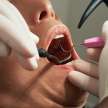
Introduction:
Dental hygienists play a crucial role in the field of oral health care, working alongside dentists to ensure the maintenance and improvement of patients' oral hygiene. They provide a range of preventive and therapeutic services, educating individuals about oral health practices, and contributing to the overall well-being of the population. This article explores the responsibilities, qualifications, and significance of dental hygienists, shedding light on their invaluable contributions to promoting dental health and preventing oral diseases.
1.The Role of a Dental Hygienist:
Dental hygienists are licensed oral health professionals who work closely with dentists to provide comprehensive care to patients. Their primary responsibilities include conducting oral examinations, taking and developing dental x-rays, and performing thorough dental cleanings to remove plaque, tartar, and stains. By meticulously examining teeth and gums, dental hygienists are instrumental in identifying signs of oral diseases, such as gingivitis or periodontitis, and referring patients to dentists for further evaluation and treatment.
Moreover, dental hygienists engage in preventive measures, such as applying dental sealants and fluoride treatments, to protect teeth against decay. They educate patients on proper oral hygiene techniques, emphasizing the importance of regular brushing, flossing, and a balanced diet. Dental hygienists also provide guidance on smoking cessation and other habits that impact oral health.
2.Qualifications and Education:
Becoming a dental hygienist requires rigorous education and training. Typically, individuals pursue an associate degree program in dental hygiene, which typically takes two to three years to complete. Some dental hygienists opt for a bachelor's degree, offering expanded career opportunities and a deeper understanding of oral health sciences.
In addition to formal education, dental hygienists must pass national and state-specific licensing examinations to practice. They also need to stay updated on the latest advancements and techniques by participating in continuing education courses.
3.Collaborative Care and Patient Education:
Dental hygienists work in close collaboration with dentists and dental assistants to provide comprehensive care to patients. They contribute significantly to the diagnosis and treatment planning process, assisting in the development of personalized oral health plans. Dental hygienists are well-versed in explaining treatment options, answering patient queries, and alleviating concerns, thereby fostering a positive and informed patient experience.
Patient education forms a cornerstone of dental hygienists' responsibilities. By imparting knowledge on oral health practices, they empower individuals to make informed decisions regarding their dental care. Dental hygienists educate patients about the importance of regular check-ups, early detection of oral diseases, and the impact of lifestyle choices on oral health. Through personalized counseling, they encourage patients to adopt and maintain good oral hygiene habits.
4.Advancements in Dental Hygiene:
The field of dental hygiene continues to evolve, with technological advancements enhancing both patient care and dental hygienists' capabilities. Innovations such as digital imaging, computer-assisted charting, and laser therapy have transformed the way dental hygienists operate, leading to improved diagnostic accuracy, streamlined record-keeping, and enhanced treatment outcomes.
Additionally, dental hygienists are actively involved in research and public health initiatives. They contribute to studies exploring new preventive measures, oral health disparities, and the impact of systemic conditions on oral health. Dental hygienists also play a crucial role in community outreach programs, organizing oral health campaigns, and conducting screenings in underserved populations.
Conclusion:
Dental hygienists are integral to the field of oral health care, ensuring the well-being of patients through preventive services, patient education, and collaborative care. Their expertise in maintaining oral hygiene, identifying oral diseases, and providing personalized counseling plays a vital role in improving oral health outcomes. As the field of dental hygiene continues to advance, dental hygienists will remain at the forefront of promoting oral health, preventing diseases, and advocating for the importance of comprehensive dental care.






Comments
Sam Smith is not accepting comments at the moment
Want to show your support? Send them a one-off tip.